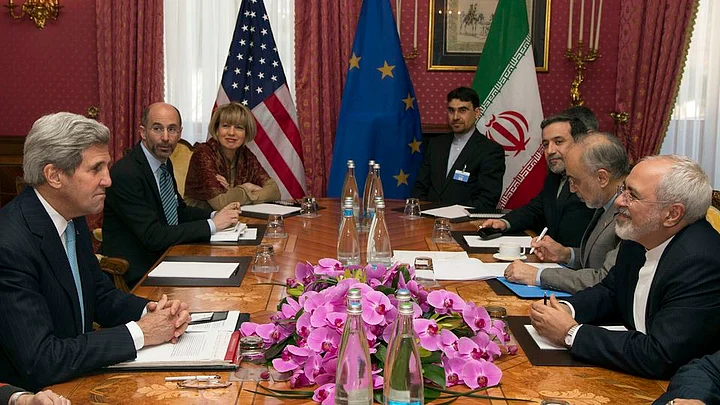An unlikely group in the Middle East has found common ground in recent days: Saudi Arabia, Israel and hardliners within Iran have all made clear they consider the landmark nuclear deal between Tehran and world powers a very bad idea.
All of these players feel a direct threat to their power and influence as a result of last Tuesday’s agreement (Iran Nuclear Deal).
For the first time in more than three decades, Iran, a country with a highly educated population of some 80 million and huge oil and gas reserves, is poised to rejoin the international community and the result could be profound change both inside and outside the country.
“The geopolitical structure of the Middle East is changing,” said Saeed Leylaz, a prominent economist based in Tehran who worked as an advisor to former president Mohammad Khatami. “And Iran’s geopolitical importance is increasing.”
Regional Destabilisation
Many observers say the Islamic Republic is likely to use the influx of cash from the lifting of sanctions to stabilise its damaged economy, but Saudi Arabia and Israel are concerned it will further destabilise the region by shoring up proxy military forces with extra weapons and funds.
Supreme Leader Ayatollah Ali Khamenei, a fiery speech marking the end of the holy month of Ramadan on Saturda, said that the nuclear deal would not change Iran’s policy in supporting allies in Syria, Iraq, Bahrain, Yemen, Lebanon and among the Palestinians.
Iran’s extensive involvement in conflicts across the region has left America’s long-standing allies questioning why a deal was struck at all.
Israeli Prime Minister Benjamin Netanyahu called the deal a “historic mistake” while Saudi Prince Bandar bin Sultan, who served as the ambassador to the US for more than two decades, wrote that it would “wreak havoc in the Middle East”.
Shaking Hands with Satan
While the US is unlikely to abandon its traditional allies, engaging Iran for the first time in years could shift the balance of power in the region, observers say.
And despite Khamenei’s anti-US rhetoric, Iranian officials will need to work with their American counterparts as the deal is implemented.
The entire history of this region in the past four decades has been based on the assumption that Iran is outside the region. That there is a tight alliance between Arabs and the United States for managing the Middle East that doesn’t include Iran. The nuclear deal does change that. Whether the Arabs should be worried about it is an open question but they’re definitely shocked by it and are reacting to it.
– Vali Nasr, a former advisor to the US State department
But it is perhaps inside Iran where the impact of the deal will be felt most.
The taboo of talking to the “Great Satan”, the term Iranian officials have used to refer to the United States for years, has been broken. That presents a threat to hardliners who see Iran’s anti-American stance as a pillar of the 1979 Islamic Revolution.
“The symbolic impact of making a deal is much bigger in Iran than in the United States,” said Nasr. “The idea of shaking hands with the so-called Great Satan, arriving at an agreement with them, the symbolism of the foreign minister huddling with the American secretary of state - these really change the entire political narrative in Iran.”
Public Expectations
There is a lot at stake: President Hassan Rouhani and his moderate allies have received a huge boost from the deal.
In street celebrations after the announcement, many Iranians praised Rouhani and Foreign Minister Mohammad Javad Zarif with slogans and placards. The question now is whether moderates can use that political capital to deliver on Rouhani’s campaign promises to improve human rights in the country and reform the economy, observers say.
There are two key elections coming up next year: one is for the majles, or parliament, where dozens of moderate candidates have been prevented from running by the Guardian Council, a governmental vetting body, since 2008. If the Council tries that in next year’s vote, it could provoke strong reactions from Rouhani or the millions who voted for him, observers say.
For ordinary Iranians, the most important issue is whether the lifting of sanctions, which have battered the economy, will improve their daily lives. The sanctions are only part of the problem, observers say. The Iranian economy is also hamstrung by aging infrastructure, poor management and widespread corruption.
“The key is if they don’t see the dividends of this deal or engagement with the global community then exuberance and expectation can very quickly turn into frustration and anger,” said Nasr. “And that’s the challenge.”
